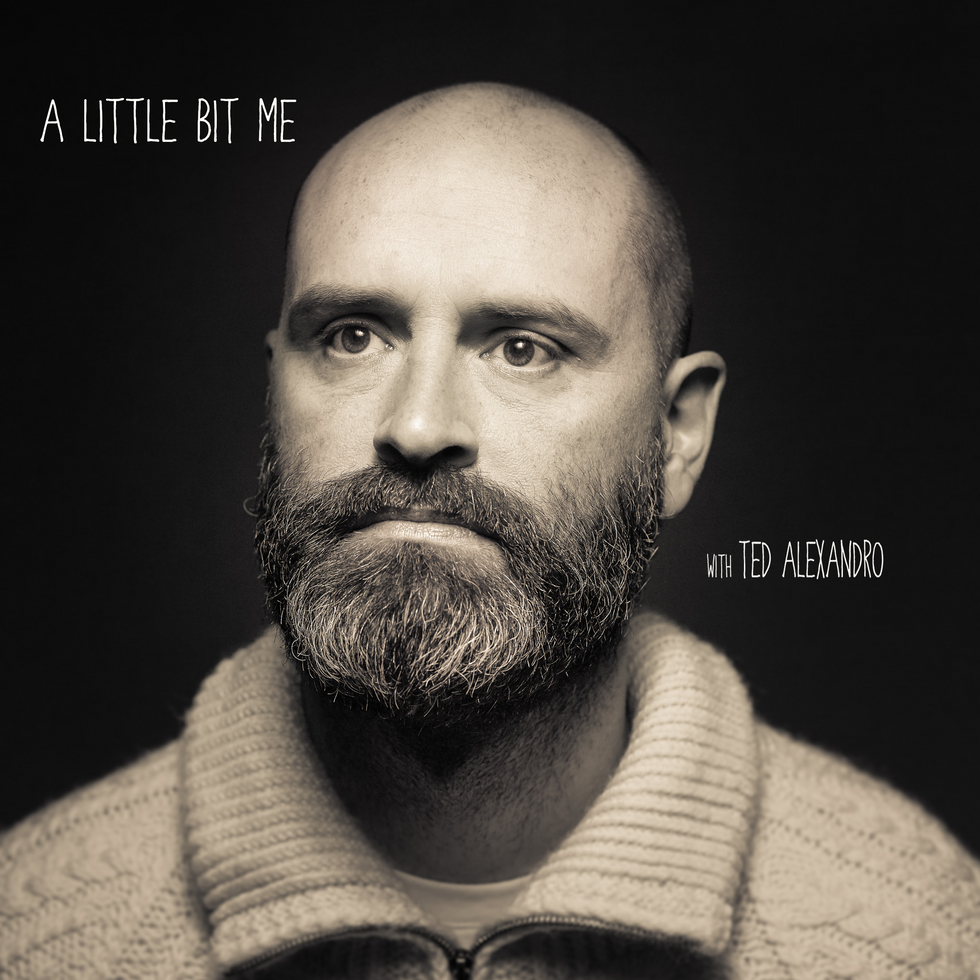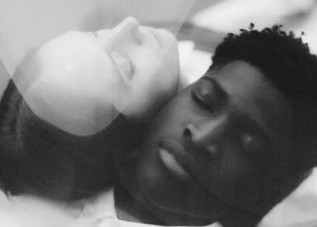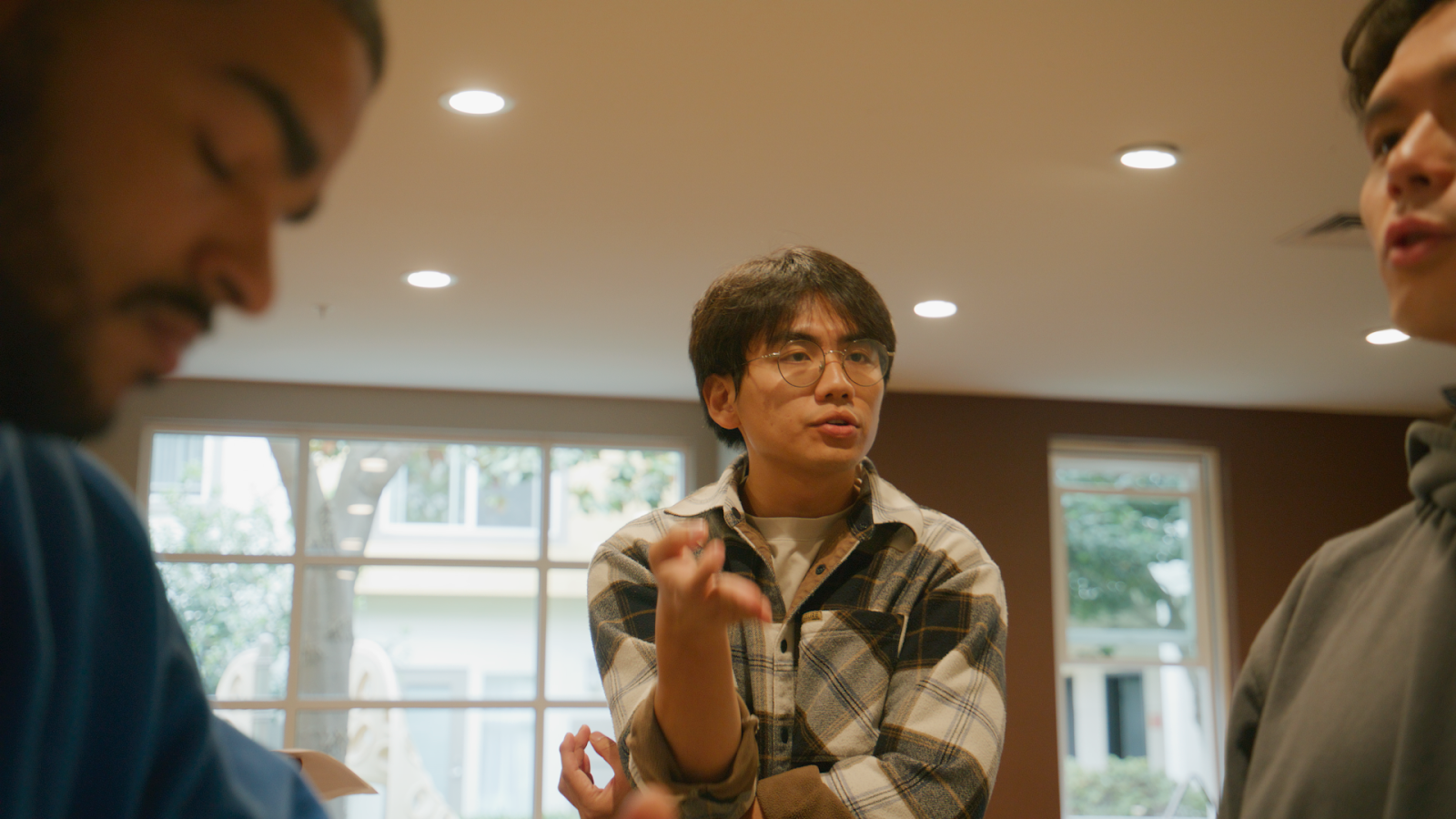CULTURE
Comedian Ted Alexandro Talks Louis C.K. and Social Responsibility in Art
22 May, 19

Eric Korenman
While 50-year-old Ted Alexandro is fervorous about landing a good joke, he considers comedy a complex art form and tries his best to cancel out all the noise when crafting his material.
“It’s about you sitting in a room, focusing in on your interests,” Alexandro told Popdust. “The evolution of discourse and sensitivity is incredibly good for society and good for comedy.” Alexandro’s new podcast, A Little Bit Me, is less comedic and more stream of consciousness. Alexandro regularly indulges in self-reflection, pondering his own faults. “Welcome to ‘A Little Bit Me,’ but is it just me?” Alexandro says in one episode. “Aren’t we all connected to a larger ecosystem? Undoubtedly we are in ways we can’t comprehend, but do we embrace that mystery?” While the tangents sometimes border on rambling, Alexandro is quick to recognize that fact and laugh at his tendencies before they become detrimental, adding hilarious orchestral cues or other edits that show he can laugh at himself. “In stand up, there has to be an economy of words, there has to be a laugh every few sentences, but with my podcast, I can be more extemporaneous, I can explore.” In an exclusive interview with Popdust, Alexandro spoke further on being a socially responsible comic, his fierce criticism of Louis C.K., and his inspiration for his podcast.
You’ve talked extensively about comedy being an art form, it’s rare to hear a comic describe stand up as art. Could you elaborate?
I mean, it’s all the arts. I have a jazz piano background as well, and, for me, comedy isn’t much further a leap from that. I was one of five siblings growing up, and we were all involved extensively in the arts, too, so I was constantly surrounded by it.
Having that many siblings who are also artistic, did you ever feel any jealousy or competition with them?
We all just honestly enjoyed each other. The arts were just a fun way for us all to express ourselves, and we were all just natural performers in different ways. I also played baseball and basketball growing up with my brothers, and that definitely manifested more competition than the arts ever did.
How did you discover you were into stand up?
It was kind of a roundabout way. I always loved performing and just being around that. My church growing up had a theater group I did in the summers, and the people running it were a jazz guitarist and a director, and they were both very legitimate, and I just felt very at home there.

What’s your creative process like?
It’s kinda a “process.” If it’s autobiographical, it’s more about finding a rhythm and talking through it. But if it’s something like social commentary, I start with a point of view and then work backward to try and find something that’s equally as funny as it is respectful. I want to add to the discourse. If I have a sense something is funny, it usually is, but I just gotta make sure to fine tune it.
In terms of the social commentary, do you feel that being a white male comedian in 2019 means you have to be more cautious about sharing your material?
I wouldn’t say cautious, but I would say just “more aware.” If your jokes depend on offending someone or come at the expense of others, then you definitely need to be more aware. Especially with social media making it so easy to broadcast someone’s stand up out into the world—it heightens the stakes. But I only think this makes for better comedy if you’re evolving, paying attention, and being sensitive.
Have you seen the comedy culture make that shift?
Well, for myself, I’ve always liked to be aware and responsible. I feel comedians should be able to say what they want but then deal with the consequences. For comedians that tend to be crass, I do see them shifting and being more aware, and they’ve found a way to deliver their material while kind of winking at the audience, showing them that they know what they’re saying is wrong, whereas before it was more overt and done for shock value. The thing about any comedy, though, is the listener finds what they like, and if people don’t like certain styles, then they shouldn’t listen to that comedy.
You seem to mostly be on board with this shift though. That video of you criticizing Louis C.K. went viral.
I wasn’t surprised by that. It was such a heated topic, and I knew that there was going to be some conversation based on the fact that I talked about it on stage at the Comedy Cellar. I just felt that if I could do it in a way that was funny and wasn’t just shit-talking, I would be happy with it, and it wasn’t even necessarily about him. The Kavanaugh hearing was that week, so it was kind of just talking about the #MeToo movement and how interrelated it all was.
Did you ever have a personal relationship with Louis?
I opened for Louis for about six months about seven years ago. It was definitely disappointing when it happened. I was bummed.
So do you feel Trump and all of these antics have been good for comedy?
No matter who’s in office, there is always gonna be comedy made about them, but the absurdity and cartoon nature of this particular presidency has definitely opened up other areas to delve into.
Talk to me a bit more about your podcast. The medium itself seems very flooded. How do you think yours stands out?
I kinda felt like exploring what it would be like. It’s been a fun exercise. There’s a segment called The Catch Up where I just cold call a comedian friend out of the blue and have a conversation right there. It’s fun to do this podcast in a way that’s unfiltered and unplanned.
You seem very contemplative on it.
That’s just kind of how I am. I’m less like I am on stage. But that’s where comedy starts with me, just thinking about things. It’s like a sculpture that you gotta chisel down.
Ted Alexandro is on tour now with Jim Gaffigan. Get your tickets here.
- Ted Alexandro makes Louis C.K., Bill Cosby jokes at The Comedy … ›
- watch Ted Alexandro take on Louis C.K. at Comedy Cellar ›
- Ted Alexandro on Twitter: “Here’s a set I did @ComedyCellarUSA … ›
- Comedian Ted Alexandro slams Louis CK for sexual misconduct ›
- Ted Alexandro on Louis C.K., Cosby, #metoo – YouTube ›
- Interview: Ted Alexandro on His Louis C.K. Jokes and #MeToo ›













